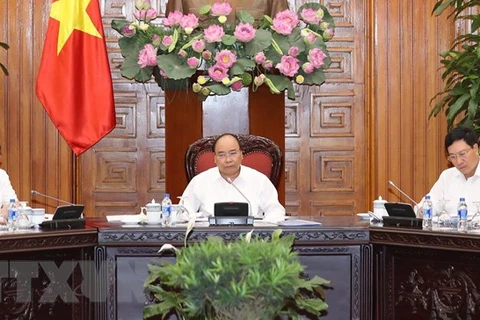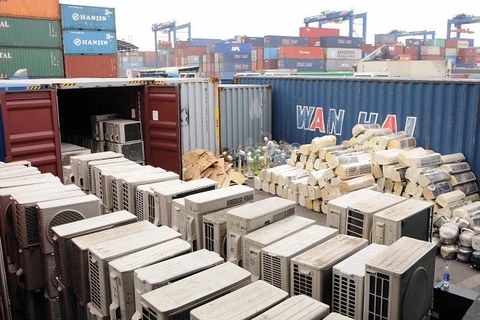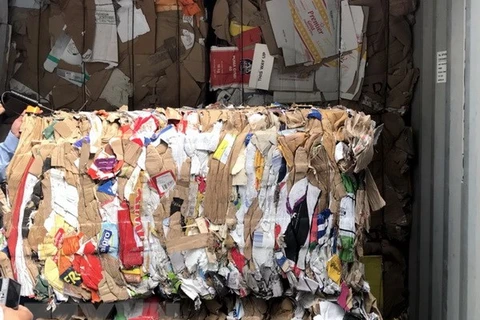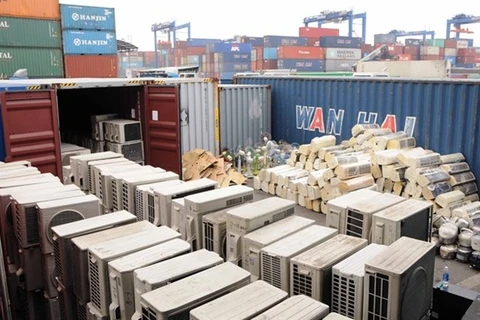Hanoi (VNA) – Prime Minister Nguyen Xuan Phuc has signed a direction calling for urgent measures to improve the management of imports of waste as production material.
The PM directed the Ministry of Natural Resources and Environment to not issue new scrap import certifications or extend the validation of existing certificates.
The ministry only considers granting the permit, which accredits firms’ fulfillment of environmental protection conditions for the imports, when the direct importer can prove a demand for and ability to use the scrap in goods production.
Meanwhile, the Ministry of Finance was tasked with directing customs agencies to hasten clearance for scrap containers of firms or individuals with valid certifications in terms of date and import quota.
The Ministry of Industry and Trade is in charge of strengthening the inspection and monitoring of scrap imports trade and usage.
After China banned the import of 24 types of scrap, the amount imported to Vietnam in 2017 and the first five months of 2018 has increased. Local firms have imported scrap from many different countries for production, with some forging import permits.
The latest report from the General Department of Customs showed that in the first five months of the year, Vietnam imported more than 2 million tonnes of steel scrap, worth 744 million USD. The biggest amount came from Japan, with 564,000 tonnes worth 200 million USD.
Remarkably, during the period, the volume of imported plastic scrap surged nearly 200 percent over the entire of 2017.
As of June 26, up to 4,480 containers of scrap materials had been stuck at Ho Chi Minh City’s ports under the Saigon Newport Corporation’s management for at least 30 days. Owners have to remove the imported scrap from Vietnam if such a shipment is held up at port 90 days from the date of arrival.
Meanwhile, 737 containers have been stored for more than 90 days and 507 others have stayed for between 30-90 days at ports in northern Hai Phong city.
About 20 percent of imported scrap is paper, and the rest is plastic and other types of scrap, according to the Ministry of Natural Resources and Environment.-VNA
VNA
























